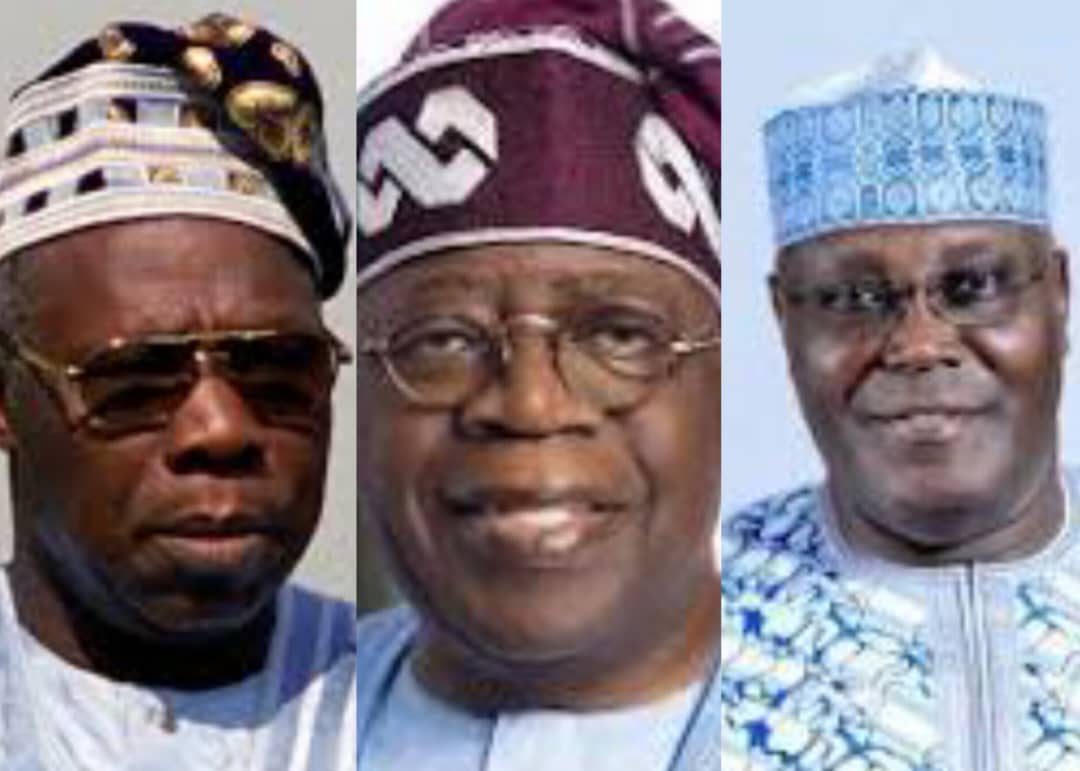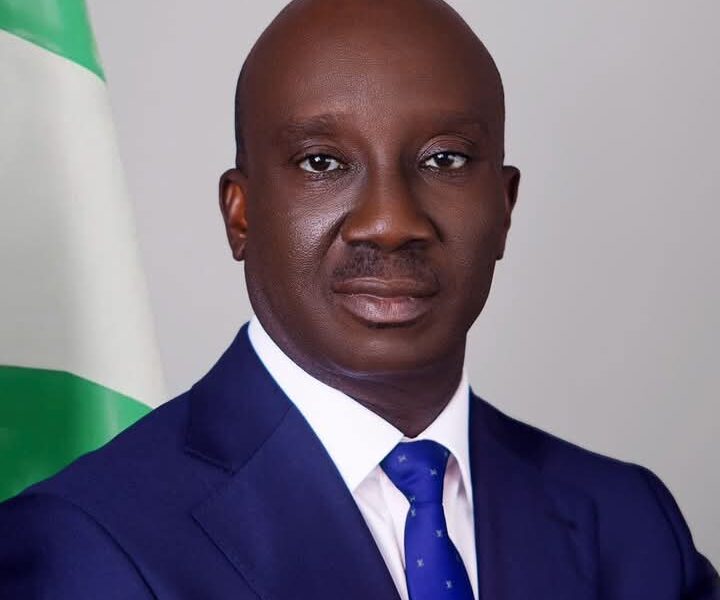By Ehichioya Ezomon
The October 21, 2022, judgment of the Supreme Court, affirming Sheriff Oborevwori as the governorship candidate of the Peoples Democratic Party in Delta State, surely calls for celebration and thanksgiving by the party faithful.
PDP’s vice presidential candidate and Delta State Governor Ifeanyi Okowa backs Oborevweri – the Speaker of the Delta State House of Assembly – to succeed him.
But his godfather, former Governor James Onanefe Ibori, kicks against it, and supports Olorogun David Edevbie – the Plaintiff/Appellant in the case against Oborevweri.
That’s why Okowa led in the worship of the Almighty for lifting a legal jeopardy that would’ve had a serious impact on his and Oborevwori’s tickets in the 2023 elections.
News about the court verdict had hardly been relayed when Dr Okowa joined Oborevwori at a thanksgiving at the Government House Chapel, Asaba, the state capital city.
Okowa, who’s reportedly made regular thanksgiving to God a centrepiece of his administration, noted that “Oborevweri has passed through a test of faith,” and urged him to “steadfastly hold on to God for giving you the (court) victory,” adding that, “God will do more for you.”
Okowa praising God for Oborevweri was also praying for himself, as their 2023 aprons are tied together. Had the court truncated Oborevweri’s bid, the rug could’ve been pulled from under Okowa in his quest to be vice president.
Actually, the jury’s out already: That the PDP would lose Delta – one of the party’s strongholds since 1999 – to the rival All Progressives Congress, at the state and national levels in the February-March 2023 General Election.
Facing intra-party pressures at the local and national levels, it’s easy for pundits to deduce that Okowa and Oborevwori’s ambitions were in flames, and that the APC’s a shoo-in for president and governor, respectively, in Delta.
The Supreme Court ruling may’ve altered that calculation, hence the PDP wasted no time in taunting the APC for its “fleeting but misplaced expectations” for power in Delta.
Delta PDP’s spokesman, Ifeanyi Osuoza, said: “With the judgement delivered by the Supreme Court and the matter fully settled, the PDP is now much stronger and will be more united and formidable going into the 2023 elections.
“The litigation, which centred around the legal affirmation of our authentic governorship candidate, had initially given fleeting but misplaced expectations to the fractured opposition APC.
“But their hopes have been comprehensively and completely dashed with the decisive judgement of the Supreme Court, which has now settled the matter once and for all.
“As we celebrate this very important landmark judgement, we hereby appeal strongly and sincerely to all our members, especially Olorogun David Edevbie, to wholeheartedly embrace the Supreme Court decision.
“Now that the legal fireworks are over and done with, we call on all our loyal, committed, and unwavering party members, to come together as one big united family. They should sheath their swords and let bygones be bygones.
“Our ultimate goal now is to win the 2023 general elections in all positions and with everyone joining hands and all pulling in one definite, unwavering direction towards victory.”
The PDP can celebrate, thanks to Edevbie, who took Oborevwori to court, alleging forgery in the documents submitted by Oborevwori to the PDP for clearance to participate in the May 2022 governorship primaries.
But in his haste to nail Oborevwori, Edevbie, who came second at the primaries, failed to comply with the court processes and procedure for interrogating actions that border on criminality, which forgery falls into.
Edevbie didn’t wait for the PDP to send Oborevwori’s documents to the Independence National Electoral Commission before questioning their authenticity in court.
Rather than come by way of a Writ of Summons – to allow for oral and documentary evidence – Edevbie filed for only affidavit evidence, which’s fatal to his allegations that must be proved beyond reasonable doubt.
These were the main pillars – not whether the documents were really forged with discrepancies – upon which the Supreme Court rested its verdict on the Edevbie case.
In a unanimous decision by a five-man panel, led by Justice Amina Augie, the apex court dismissed Edevbie’s appeal as “lacking in merit,” as the allegations raised against Oborevweri were rooted in criminality.
The court noted that Edevbie ought to commence his action through a Writ of Summons, to allow the trial court to adjudge the matter via oral and documentary evidence.
The court held that Edevbie’s “sundry allegations of fraud, false representation and forgery of documents” couldn’t be resolved via affidavit evidence or Originating Summons.
The court also held that Edevbie’s case was premature, as the PDP hadn’t submitted Oborevwori’s name to the INEC before he filed the suit, adding that, “Only upon the submission of particulars of a candidate to INEC by a political party will a cause of action crystallise.”
In the lead judgement, Justice Tijjani Abubakar said the Supreme Court saw no reason to set aside the Court of Appeal ruling that upheld Oborevwori’s nomination, declaring that, “In conclusion, I found no merit in this appeal and it is accordingly dismissed.”
In closing, the Edevbie case fulfils these sayings: “Those who are too clever sometimes overreach themselves.” “If you’re not careful in pursuing your enemy, you’ll pay for it.” When the Lord wants to fight for you, He makes your enemy to make irreversible mistakes.”
Edevbie, a very brilliant personality, was in such a hurry to nail Oborevwori that he didn’t realise that his entire writ was defective and lacked foundation from the get go.
BBYou can’t place something on nothing and expect it to stand. As the Appeal and Supreme Courts observed, Edevbie couldn’t rely on affidavit evidence on the weighty criminal allegations he levelled against Oborevwori.
In his haste, Edevbie also breached the law of natural justice, by taking Oborevwori to court not on the outcome of the primaries that Oborevweri had won, but on the basis of an opposition research material on him.
Perhaps aware of the deck stacked against him due to Okowa’s backing for Oborevwori, Edevbie had intended the “oppo” material as “Plan B” to disqualify Oborevweri.
But as Oborevweri observed on October 21, at the thanksgiving to celebrate the Supreme Court judgment, “… when you have God, you are sure of victory… and we return all the Glory to God.”
One hurdle crossed, Okowa and Oborevweri should work to reconcile aggrieved Delta PDP members. Oborevwori says he’s “no enemy nor the ability to hate anyone,” even as he believes that, “my brothers from the other side (Edevbie’s camp) will join us in no distant time…” Let’s hope that that belief – and PDP’s “strong and sincere appeal to members… to wholeheartedly embrace the Supreme Court decision” – will yield dividend, as the 2023 polls barrel down to less than four months away!
Mr Ezomon, Journalist and Media Consultant, writes from Lagos, Nigeria.




